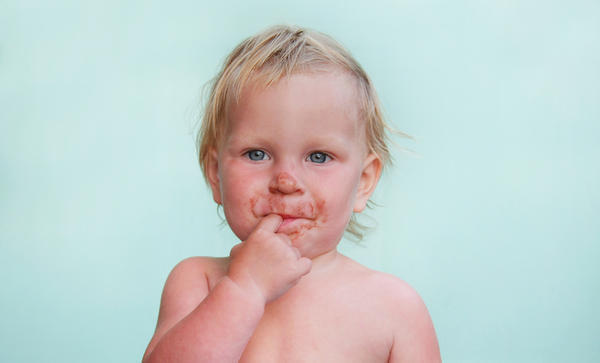
A mild, contagious viral infection common in young children — is characterized by sores in the mouth and a rash on the hands and feet, sometimes the buttocks and legs. The sores may be painful. The illness usually doesn’t last more than a week or so.
| Hand-foot-and-mouth disease primarily affects children younger than age 10, often those under 5 years. Adults can be affected. |
Hand, foot and mouth disease is caused by a group of viruses known as enteroviruses. The most common types of viruses that can cause the condition are:
- coxsackievirus A16, A6 or A10
- enterovirus 71
Enterovirus 71 carries a higher risk of causing serious complications
The illness spreads by person-to-person contact with an infected person’s:
- Nasal secretions or throat discharge
- Saliva
- Fluid from blisters
- Stool
- Respiratory droplets sprayed into the air after a cough or sneeze
Symptoms:
Symptoms of hand, foot and mouth disease include:
- Cough and a moderately high temperature of around 38-39°C (100.4-102.2°F)
- a non-itchy red rash, made up of spots or small fluid-filled sacs (vesicles), which usually develops on the hands and feet, but may also occur on the knees, elbows, groin and buttocks; sometimes the rash can develop into painful blisters. The skin rash and any blisters can last up to 10 days.
- Painful mouth ulcers: red spots develop inside the mouth, particularly around the tongue, gums and inside of the cheeks. At first, the sores are about the size of a small button. They then rapidly develop into larger yellow-grey mouth ulcers surrounded by a red ring of tissue. You would normally expect to see 5-10 ulcers in the mouth. The ulcers can be very painful and can make eating, drinking and swallowing difficult, which may cause to dribble excessively.
- Loss of appetite
- Abdominal Pain
Occasionally, hand, foot and mouth disease can cause vomiting, particularly if it is caused by the enterovirus 71 strain. These early symptoms can last 12-48 hours.
See your doctor if mouth sores or a sore throat keep your child from drinking fluids. And contact your doctor if after a few days, your child’s signs and symptoms worsen.
Care & Treatment
- Get rest.
- Drink fluids — milk-based fluids may be easier to tolerate than acidic liquids, such as juice or soda.
- If needed, taking over-the-counter pain relievers other than aspirin, such as acetaminophen (Tylenol, others) or ibuprofen (Advil, Motrin IB, others) in an age- and weight-appropriate form and dosage. But they’re not necessary for low-grade fevers and will do nothing to hasten the resolution of your child’s condition.
- Use mouthwash or oral spray to numb pain.
There’s no specific treatment for hand-foot-and-mouth disease. Signs and symptoms of hand-foot-and-mouth disease usually clear up in seven to 10 days.
Home Remedies
Try these tips to help make blister soreness less irritable and eating and drinking more tolerable:
- Suck on ice pops or ice chips.
- Eat ice cream or sherbet.
- Drink cold beverages, such as milk or ice water.
- Avoid acidic foods and beverages, such as citrus fruits, fruit drinks and soda.
- Avoid salty or spicy foods.
- Eat soft foods that don’t require much chewing.
- Rinse your mouth with warm water after meals.
- If your child is able to rinse without swallowing, swishing with warm salt water may be soothing.
Prevention
- Wash hands frequently and thoroughly, especially after using the toilet or changing a diaper and before preparing food and eating. When soap and water aren’t available, use hand wipes or gels treated with germ-killing alcohol.
- Get in the habit of cleaning high-traffic areas and surfaces first with soap and water, then with a diluted solution of chlorine bleach and water. Child care centers should follow a strict schedule of cleaning and disinfecting all common areas, including shared items such as toys, as the virus can live on these objects for days. Clean your baby’s pacifiers often.
- Show your children how to practice good hygiene and how to keep themselves clean. Explain to them why it’s best not to put their fingers, hands or any other objects in their mouths.
- Keep children with hand-foot-and-mouth disease out of child care or school until fever is gone and mouth sores have healed. If you have the illness, stay home from work.
Hand, foot and mouth disease gets better on its own without treatment and complications are rare in adults. However, the symptoms can cause severe discomfort.
Ref:
